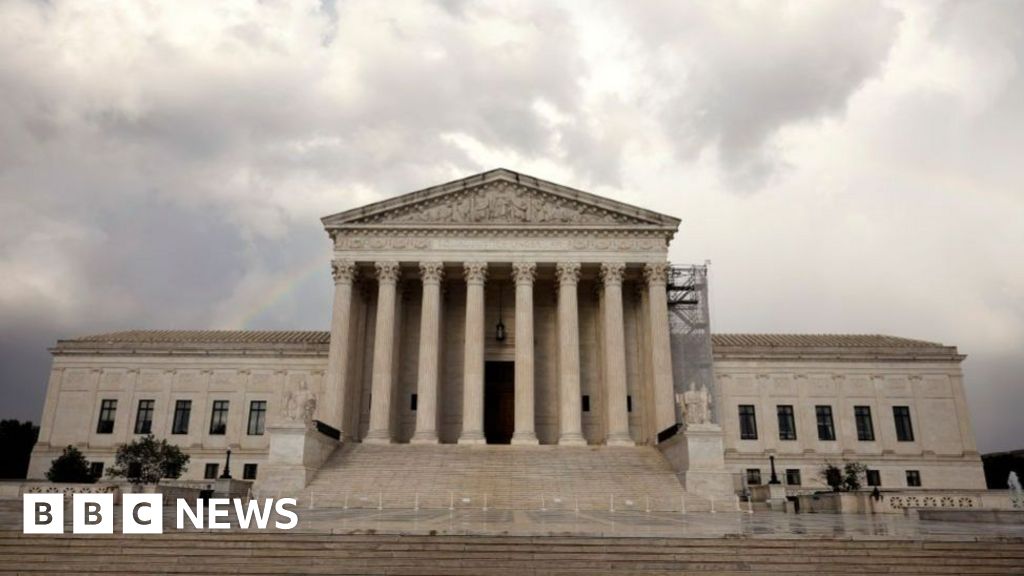Ethical investment firms and environmentalists are filing the first shareholder resolution to target an Australian bank over accusations it is financing businesses involved in the clearing of natural forests, which critics warn is threatening endangered species and raising financial risks.
A group of shareholders working with the Australian Conservation Foundation will on Tuesday file a resolution for National Australia Bank’s December annual meeting, focusing on the financing of businesses allegedly involved in “deforestation.”
Deforestation refers to when natural forests are lost because the land is converted to farming, tree plantations or there is severe and sustained degradation.
While farming groups have previously rejected that there is widespread illegal land-clearing, Westpac said in 2023 it would take steps not to lend for deforestation by 2026. ANZ Bank, which holds its annual meeting soon after NAB’s, is also expected to face a resolution on deforestation.

The ACF says agriculture is the biggest cause of koala habitat destruction.Credit: Joe Armao
The resolution calls for NAB to disclose how much it lends to customers involved in deforestation, and to set a strategy to “stop financing deforestation”.
The Australian Conservation Foundation has facilitated the resolution, which is being filed by NAB shareholders SIX Invest, Australian Ethical, Melior Investment Management and other small shareholders.
The ACF has previously said the expansion of the beef industry is the top driver of deforestation in the country – and NAB is the largest agribusiness bank in the country.
The acting chief executive of the ACF, Paul Sinclair, pointed to a June report from the environmental group, which examined the mortgages held over 100 properties where the ACF alleged there had been deforestation.
That report, which attracted criticism from farming groups, found NAB was linked to more of these properties than its rivals.
In response to that report, the National Farming Federation questioned how much of the land was legitimately cleared with offsets. Queensland farming group Agforce said the report was misleading and argued the state had stringent laws on vegetation management.
The ACF’s Sinclair said Australia was a “global deforestation hotspot,” and the ACF investigations had previously found the destruction of habitats – which threatened animals including koalas and pink cockatoos – continued apace in Australia.
It’s “not good business” for any bank to fund clients who rely on deforestation to make a profit.
“Banks that finance deforestation not only destroy habitat and drive species towards extinction, they also expose themselves, their shareholders and the broader economy to escalating environmental and financial risks,” he said.
A spokesperson for NAB said the bank was already acting on recommendations of the ACF’s report on deforestation, and it continued to revise its approach to “deforestation risk.”
“As Australia’s largest lender to agriculture, we understand deforestation is a complex challenge that needs collaboration across government, industry, and landholders,” the spokesperson said.
Changes made by NAB included updating its land valuation processes and investing in “geospatial tools to better understand land use changes and the risks they pose,” the spokesperson said.
Amanda Richman, ethical stewardship lead at fund manager Australian Ethical, said it was “not good business” for any bank to fund clients who relied on deforestation to make a profit. She said these clients would face higher risks from potential degradation in soil quality and reduced long-term agricultural capacity.
She said deforestation was also relevant to NAB’s climate change commitments – the bank says its ambition is to achieve “net zero” across its financed and facilitated emissions by 2050. Forests absorb carbon dioxide from the atmosphere, and the clearing of forests releases carbon into the atmosphere.
“As investors committed to using our capital to drive positive change, we’ve been engaging with NAB to seek a commitment to stopping the financing of deforestation,” Richman said.
ANZ Bank has a policy on land and forest management that it reviewed and updated last year.
Loading
In late 2023, Westpac because the first big Australian bank to commit to zero deforestation from 2026. At the time, Westpac executive (now chief executive) Anthony Miller said the policy only applied to “natural forest” – saying the policy did not apply to the clearing of regrowth, and nor did it apply to areas currently used for grazing. “We’re not telling farmers they can’t clear their land,” Miller said at the time.
Over the years banks have faced many resolutions calling for lenders to tighten their lending for big carbon emitters, but this is the first resolution for an Australian bank over “nature risk” – risks that could arise from a company’s impact on the environment, or its dependence on the environment.
Supermarket giants Coles and Woolworths are this year facing shareholder resolutions over the environmental effects of farmed seafood, such as the controversial salmon farming industry in Tasmania. Last year the companies faced similar resolutions, which were unsuccessful despite attracting some shareholder support.
Most Viewed in Business
Loading


















































